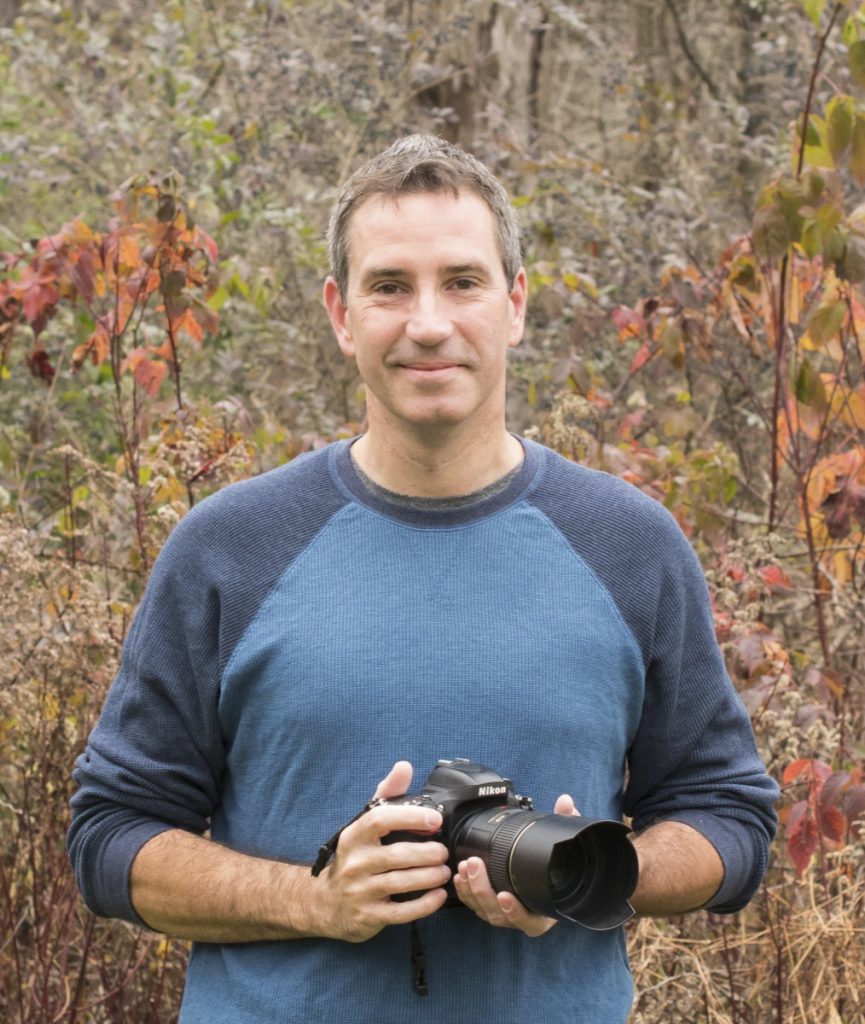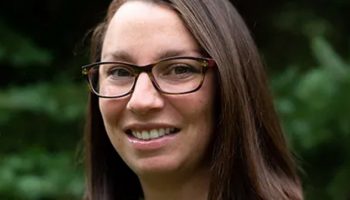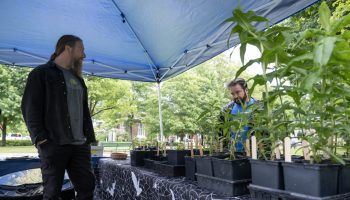As the sun slopes below the horizon of Chautauqua Lake, residents on the grounds will soon head inside their homes, leaving the streets of the grounds still and quiet.
Night falls. Cue nature’s orchestra.
The chittering, chirping symphony is the soundtrack of Chautauqua’s summer nights, welcoming native wildlife to come out and play while the people are away.
While usually left to its own devices, the wildlife of the dark will have an audience to perform for this weekend, as Twan Leenders — conservation biologist and ecological restoration manager at the Chautauqua Watershed Conservancy — will take Chautauquans through an immersive experience of nocturnal behaviors of insects and other wildlife.
Leenders will lead Chautauquans on a nighttime tour of insect behaviors and noises in a special Bird, Tree & Garden Club event at 8:30 p.m. Sunday, July 31, starting at Smith Wilkes Hall.
The late lecture opens the BTG’s special series of events embracing Week Six’s theme “After Dark: The World of Nighttime.” Later in the week, BTG will host bat biologist Jonathan Townsend for a bat echolocation adventure at 8:30 p.m. Tuesday in Smith Wilkes.

With more than 20 years of experience in conservation biology, Leenders is well-versed in plants and animals, especially tropical amphibians and reptiles. Originally from the Netherlands, Leenders’ interests in animal ecology and conservation management led him to become a researcher at Yale University’s Peabody Museum and to teach biology at Sacred Heart University, while also heading the Science and Conservation Office of the Connecticut Audubon Society. Now, through his role at the Chautauqua Watershed Conservancy, Leenders helps to mitigate threats of algae and excessive nutrient inputs plaguing Chautauqua Lake.
Leenders’ passion for conservation ecology began in his homeland of the Netherlands, where he became inspired to preserve natural landscapes amid an ever-changing terrain.
“I grew up on a farm in the Netherlands where every single square inch of the country had been shuffled over for centuries already,” Leenders said. “When I finished my education, I really was graduating during a time when there was a whole emphasis on rewilding, on bringing back nature in places where it clearly had not been for a long time. Not just the notion that people can destroy nature, but the notion that people can also build back nature if we get our minds to it, always was really inspiring to me.”
While Leenders often gives talks for BTG during the summer seasons, Sunday’s nighttime lecture is one he particularly looks forward to.
“It’s the first time that we’re doing these nighttime events,” Leenders said. “I think I’m just as curious as anybody else who can join in on what we’ll find.”
Leenders predicts that he will locate some cicadas, tree crickets and bats on the expedition. While mid-summer isn’t the best time to spot owls, there is still a possibility of an owl sighting on the nighttime stroll.
The wildlife of the night might be something many Chautauquans have not witnessed, and Leenders is happy to introduce them to their outdoor neighbors.
“It’s always nice to be able to expose people to life in our backyards,” Leenders said. “I still feel like a kid in a candy store. I hear there’s so many cool things that live out here in this part of New York state, which is an area that really doesn’t see a whole lot of … naturalists and birders, people who have interest in other fields in biology, or (are) just generally interested in nature.”
Leenders plans to start his talk at Smith Wilkes and walk throughout the grounds toward the lake to see what creatures he can find on the shore, such as nighthawks.
“Some species are more active doing stuff over open water, so we’re likely to find them there, or find different species over water than inside the more wooded areas of the ground,” Leenders said. “I think we’re going to try both and see what we find.”
For those planning to attend, Leenders says a flashlight may come in handy to navigate the rough terrain of wooded areas and the uneven cobblestoned streets.
Leenders looks forward to the after-dark adventure that will shed a light on Chautauquans’ surroundings.
“There are pockets of all kinds of interesting things that are just waiting to be discovered,” Leenders said. “Every year, we’re finding new things that we didn’t really know were here, and they add to the tremendous diversity that we see in Chautauqua County. I think for people who are completely unaware, this walk will be an eye-opener to get a sense of the sheer diversity of wildlife that we have here.”




